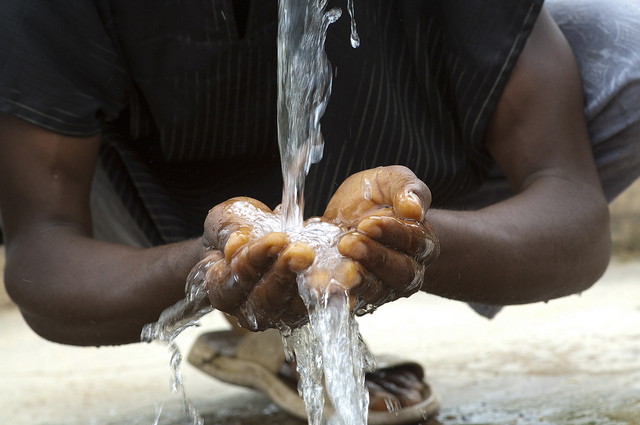
The beat
Ending a dream
President Trump has declared that he’ll end the Deferred Action for Childhood Arrivals (DACA) program, which was established under an executive order signed by President Obama in 2012. It allows undocumented immigrants who arrived in the US with their parents as children—known as ‘Dreamers’—to be temporarily protected from deportation and receive two-year work permits. Tuesday was the last day for new DACA requests. Congress now has until 5 March 2018 to produce an alternative. New bills are reportedly ready for debate. A video features a few of the affected 800,000 immigrants talking about what the demise of DACA means to them.
Dirty money
The Organized Crime and Corruption Reporting Project (OCCRP) published a report this week that accuses Azerbaijan’s ruling elite of running a secret slush fund worth €2.5 billion (A$3.7 billion). OCCRP worked with European newspapers to expose the activities of the so-called Azerbaijani laundromat: European politicians were paid off, journalists and businessmen bribed, and luxury goods acquired. Among others, Ali Nagiyev—the man responsible for fighting corruption in Azerbaijan—was a major beneficiary of the system. The money is said to have originated from accounts linked to the ruling Aliyev family.
Dancing with the police
On a lighter note, after a German policewoman’s salsa interlude went viral earlier this year, London’s annual Notting Hill Carnival brought us Constable Dan Graham showing off his dancing skills.
CT scan
Regional response to Marawi
Philippine President Rodrigo Duterte has announced plans for counterterrorism cooperation between the Philippines, Indonesia and Malaysia. It would include the Philippines opening its borders ‘to the Malaysian authorities and Indonesian authorities’, said Duterte. The move is a response to the seizure of the southern Philippine city of Marawi by a coalition of ISIS-affiliated groups. It’s believed that the militants in Marawi ‘received financing and other assistance from the Islamic State command’.
Morocco leads the way
Abdelhaq Khiame, the head of Morocco’s counterterrorism agency, has cited ‘lack of oversight by authorities’ in Europe as a cause of the indoctrination of the young men who carried out last month’s Barcelona attacks. Morocco has adopted a three-pronged counterterrorism strategy: close surveillance of potential threats, education in moderate Islam, and economic development to counter poverty. The strategy has had remarkable success: according to the International Crisis Group, ‘Morocco is the only Maghreb country’ in which ISIS has not successfully carried out an attack.
Soldiers arrested
British police, supported by the army, have arrested four soldiers under counterterrorism legislation. The four men are believed to be members of National Action, a banned British neo-Nazi group. An army spokesperson confirmed that the matter is now the ‘subject of a civilian police investigation’.
Checkpoint
Australia and Timor-Leste strike maritime boundary deal
Australia and Timor-Leste have reached an agreement resolving their dispute over the Greater Sunrise gas field, which has an estimated value of A$53 billion. Foreign Minister Julie Bishop called the agreement a ‘landmark moment’ on Saturday, after it was reported earlier this year that both Australia and Timor-Leste were unhappy with the 2006 agreement. While the announcement has been the subject of much jubilation, some have counselled caution until the details of the agreement come to light.
Doklam standoff ended … but who won?
The standoff between Chinese and Indian forces in the disputed Doklam territory has ended, with many celebrating an Indian ‘victory’. India’s media have declared China the loser and claim the standoff is a model for dealing with the assertiveness of China. While it’s too early to fully dissect the confrontation and its sudden dissipation, some academics disagree with the Indian verdict of triumph.
Aid blocked to Rohingya
Reports estimate that 15,000 Rohingya are expected to cross the border between Myanmar and Bangladesh each day as the persecuted minority continues to flee violence at the hands of the Buddhist majority of Myanmar. The situation escalated after the UN was blocked from administering aid to civilians caught in the conflict. A spokesperson for Amnesty International said that blocking aid is putting ‘tens of thousands of lives at risk and show[ing] a callous disregard for human life’. A satellite image of the destruction can be viewed here.
First responder
Economic water scarcity in Nigeria
Nigeria has more than four times the available surface water of South Africa, but only 19% of Nigeria’s population has access to safe drinking water and only 67% have basic water supply. That’s because Nigeria suffers from ‘economic water scarcity’, or the inability to properly manage, use and protect water resources. This contradiction brings attention to the issue of institutional development and management as the crux of development struggles faced in the region.
Hurricane Harvey troubles
The United States is still dealing with widespread destruction wrought by Hurricane Harvey last week. Notable effects of the hurricane include refineries and chemical plants leaking thousands of tons of pollutants; up to a million cars being destroyed; and up to 180,000 houses suffering extensive damage, only a fraction of which are covered by flood insurance. Human-induced climate change made the situation significantly worse.
Cinderella crisis in Congo
On Tuesday, the head of Oxfam, Mark Goldring, described the conflict in central Congo as a ‘Cinderella crisis’. He said that aid is needed on a massive scale, but the emergency has been neglected by the international community. Thousands have been killed and 1.4 million people have been uprooted since the insurrection began in August 2016. Only 40% of a US$64.5 million emergency appeal launched in April has been funded so far.

